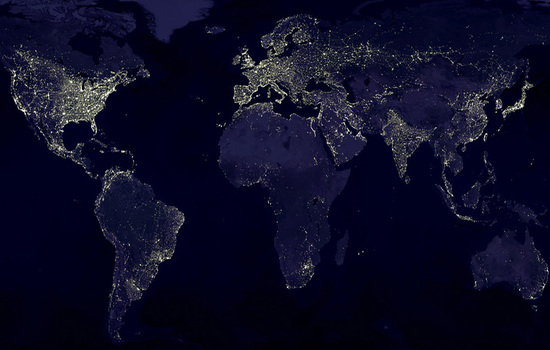Not everyone is an experienced preppers. Even though I’ve been on the preparedness trail for about three years I still consider myself a newcomer, most days I learn something new. This article is for those who like me, feel overwhelmed at times, those who don’t know where to start or how to proceed.
First: Let me say well done on making what will likely be the most important decision of your life.
Second: There are a lot of people in the preparedness community who are more than happy to help you on your way. They won’t think your questions are stupid even though you may feel stupid asking them, just let them know you’re new to the concept and you will have more help and support than you ever dreamed possible.
Third: Understand that just by realizing that all is not well in the world and that our lives may change without warning you are a few miles ahead of the majority of the population. In a relatively short space of time, you will be many miles ahead of them and in a better position to take care of yourself and your family.
***
If something happened tonight that meant you woke up tomorrow and there was no electricity what would be the first thing you would do?
There are a massive amount of articles out there telling us how to deal with a long-term power down issue. Some of the advice is very good, some okay and some totally bloody useless. There is no possibility of anyone writing a ‘one size fits all’ article on the subject because our homes and requirements vary so considerably, even within the same family. One person may live in a high rise, another in a cabin in the woods and herein lies the problem.
The ideal situation to be in is having enough space to grow the fresh fruit and veggies the family needs to thrive, raising chickens and rabbits, maybe a goat or even a cow for milk and a couple of sheep would be nice for wool and meat. Solar and/or photovoltaic cells would provide light and enough power to run a fridge and a couple of power sockets. You would have a reliable water source on your land. as a backup for your well should it ever run dry. The garage and sheds are full of manual tools and you have the knowledge and the good health to use them. The pantry is full of delicious home canned food and five gallon buckets of grains, flour, and sugar. you have a range to cook on and a woodshed the size of a double garage full of perfectly sized, stacked five-year seasoned hardwood to keep the wood stoves burning. You are far enough off the beaten track to evade detection by those that are less well prepared. Someone in the family is a doctor and able to use the extensive medical kit, complete with surgical instruments that you have acquired over the years, and you have enough feminine hygiene products to keep the ladies of the family happy for at least two decades. You have weapons and ammunition in quantities that the Army would be proud of, a decent perimeter fence and four large and very well-trained dogs patrolling constantly.
This is the dream, the ultimate goal of preppers but sadly it is not the position that 99.9% of us are in.
Unless you have a truckload of money buying into this kind of set up is simply impossible and most of the prepper community has to build up their provisions steadily as cash permits, all the time hopeful that we will reach the point where we have enough to survive for years rather than months should the Shit really hit the fan.
Electricity hasn’t been around all that long by human standards, we know we can survive without it, your great grandparents….and mine did so, as did generations before them, so what is it that fills us with such dread about the power going off and not coming back on?
Put simply it’s technology. We have come so far in what is in reality a very short space of time. Few in the first world don’t have a fridge and freezer, a tv and/or computer. Telephones, be they land line, (many of which now work from an electrically powered base station,) or mobile keep us connected to family and friends around the globe.We can even get real-time pictures with Skype and Facetime which makes keeping in touch far easier and of a better quality than ever before. Our homes are heated with radiators or hot air, we have boilers and electric showers to give us hot water on demand. We turn on the tap and know, most of the time that what comes out of it is clean and safe to drink 24/7. We rely on electricity for cooking, cleaning and washing clothes. We commute on trains, catch planes, use public transport and drive our cars, and all this is only available to us because we have electricity.
The infrastructure runs on electricity and without it the GPS that air travel relies on packs up. The pumps we use to fill our cars with fuel won’t work, the supply line of food arriving at supermarkets stops, every facet of life changes the instant the power goes off and this is why a permanent or even long term power outage is feared by so many. It is why the science community watches the skies so carefully and why governments obsess over who has an EMP weapon that could have the same effect as a major flare/impact albeit on a smaller scale.
There is no reason to assume that we won’t fall foul of a major flare, asteroid impact, or some other calamity that will cut the power supply for a considerable amount of time if not a decade or even longer. These things have happened before and they will happen again, we have no idea when and any notice we get regarding such an event will be relatively short.
So what do you do next?
- Step one is to stop dreaming about the perfect bug-out location that you can’t afford. Aspire to get there one day by all means but don’t waste valuable time planning what the distant future for you and you family may be like. Concentrate on the here and now.
- Start a loose leaf folder with section dividers. Each section should contain all the information you need regarding that area of preparedness. You should not only list what you have, but also what you want to add to improve your future situation. Tick off the items as you get hold of them so your inventory can be updated easily. Suggested sections may be power failure, security, social breakdown, disease outbreaks, container gardening etc.
- Read: Billions of people live without electricity and do so with relative success. What can their lifestyles teach you? Collect information on pioneer living, learn how people used to live, the hints and tips that allowed them to not only survive but thrive.
- Research solutions that could make your personal circumstances more bearable in the event of a power supply failure. There is a wealth of information online regarding prepping in an apartment, in a city etc take advantage of it, you are not the only one who has been in the position you are currently in.
- Start an inventory that you keep at the front of your folder. List your purchases and acquisitions as you make them. Update the various sections in your folder crossing off items that you have obtained. Add other items that have come into your head since making the original list.
Electricity has made our lives easier, and allowed the development of products our ancestors could only have dreamt of. Some of these inventions will be of great value should the grid cease to be.
Solar lights are a simple but prime example. Charged outdoors during the day they can be brought in at night to add a few hours of low-level light to our lives. Very safe and ideal for children’s rooms where candles are not really an option.
Think laterally and you will be surprised at things that can have uses that the designers themselves never even considered.





